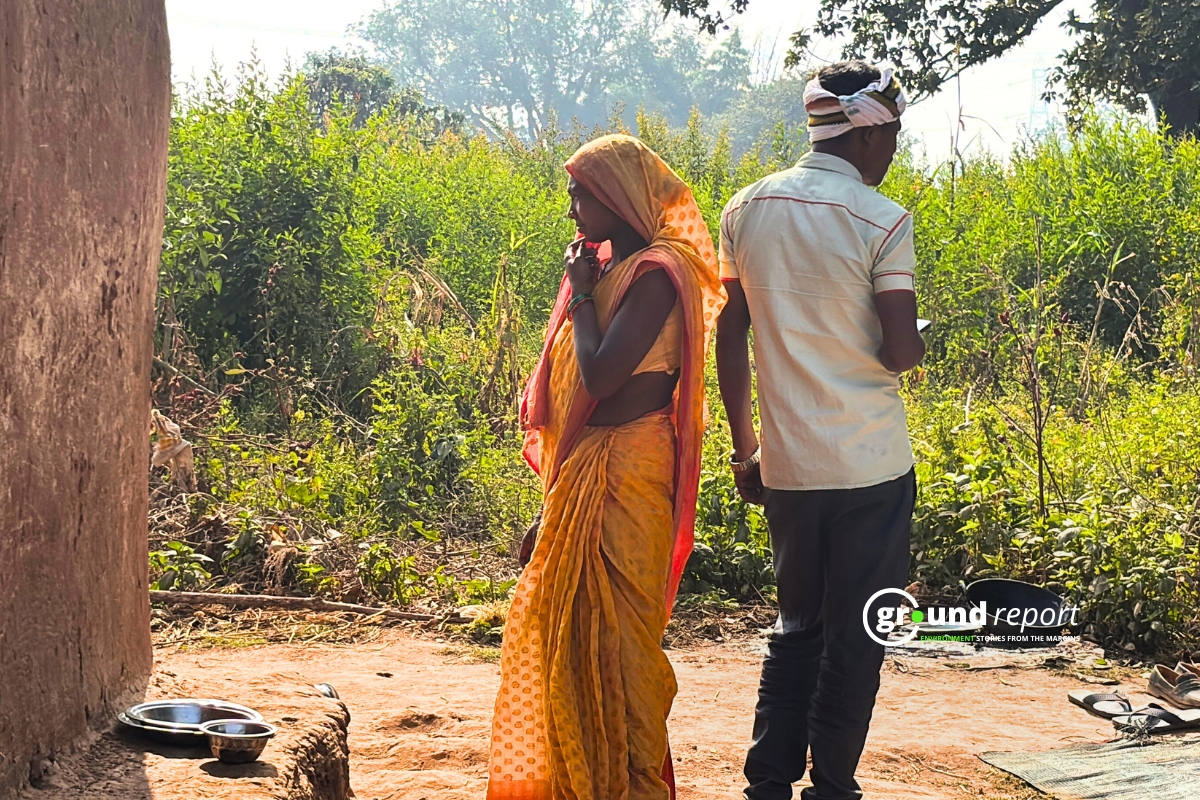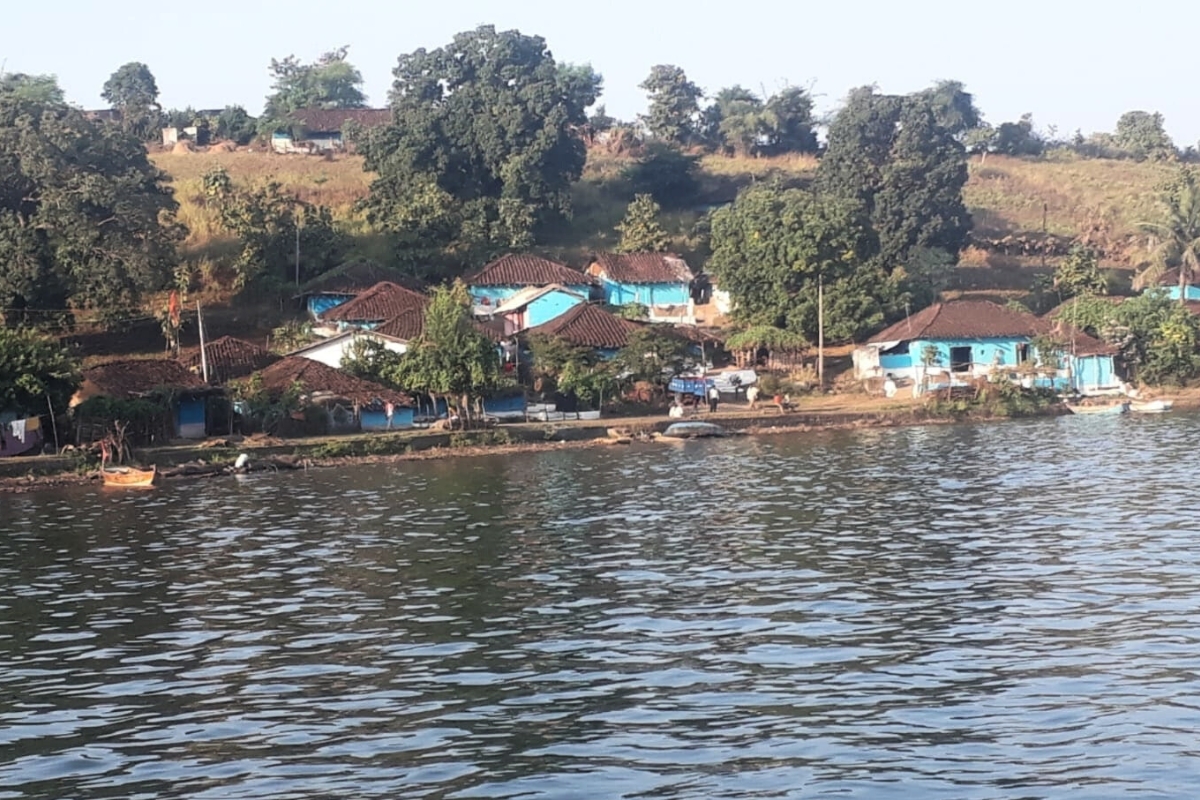The National Green Tribunal has accused the Madhya Pradesh government of failing to protect one of India’s most critical wetlands. On October 7, 2025, its Central Zone Bench in Bhopal warned that unchecked encroachments and untreated sewage have turned the Upper Lake, a Ramsar site and Bhopal’s main drinking water source, into what it called a “dumping ground.” The bench, led by Justice Sheo Kumar Singh and expert member Sudhir Kumar Chaturvedi, said officials had shown “utter neglect of constitutional obligation” and placed the survival of the city’s largest water body in jeopardy.
Petitioner Rashid Noor Khan told Ground Report that the ruling has finally forced the state administration to move. He said, “They have finally taken some action now, yes, in that sense it’s a positive step. Those who had done nothing so far have now been given a deadline of 31 October. Chief Secretary has fixed this date, so hopefully things will start moving. At least discussions will begin on the locations and land plots we’ve provided.”
An order copy accessed by Ground Report shows that the tribunal cited 227 encroachments still standing around the lake and more than 41 drains carrying untreated waste into the water. The order noted that despite repeated judicial directions, there has been no effective enforcement of the Wetlands (Conservation and Management) Rules, 2017. Justice Singh observed in the order: “Negligence of those to whom public duties have been entrusted can never be allowed to cause public mischief.”
The case, Rashid Noor Khan versus Collector, Bhopal and Others, has exposed a long record of inaction. The tribunal’s findings highlight both unchecked violations and official apathy, raising questions about whether the state can safeguard a Ramsar site that supplies drinking water to more than 12 lakh people in Bhopal.

Upper Lake, also known as Bhoj Wetland, is spread over nearly 31 square kilometers and supplies drinking water to more than 12 lakh residents of Bhopal. It also supports groundwater recharge, moderates the local climate, and provides habitat for fish, turtles, amphibians, and thousands of migratory birds. The adjoining Kaliasot dam irrigates about 4,588 hectares of farmland.
The ecological balance of this water body has global recognition. It hosts 266 species of birds, 36 butterflies, more than 700 plant species, and in peak season up to 35,000 waterbirds. The site is internationally important for Sarus cranes and red-crested pochards. Yet, despite this biodiversity, its water has been polluted for years by sewage, biomedical waste, and illegal construction.
In recent years, scientists have also detected microplastics in the lake’s waters. A 2023 study found up to 6.6 microplastic particles per litre of water. Most were fibers and fragments small enough to be ingested by fish and birds. Researchers identified common plastics such as PET and polypropylene, raising concerns about long-term health risks to humans and wildlife.
“Microplastics are a very serious concern,” said Dr. Pradeep Nandi, Director General of the National Center for Human Settlement and Environment. “They’re much smaller than what sand filters can catch. Our water treatment systems are not designed to trap them.”
Citizen Evidence in Court
Petitioner Rashid Noor Khan, represented by advocate Harshwardhan Tiwari, submitted satellite imagery, digital land records, and location data from the MP Kisan App to map violations around the lake. These included boundary walls, hotels, housing colonies, and commercial projects built within the prohibited buffer zones.
Speaking about the response from authorities, Khan said, “The main question is: how could they reject our submissions in the first place? We had given GPS coordinates and photographs. Yet the government lawyer kept insisting that there was nothing there. But how? You demolished the homes of the poor, small houses of 350 to 400 square feet, but spared the big illegal constructions. The law should apply equally to everyone. If you act against one, you must act against all.”
The tribunal noted that the state government itself had notified the wetland boundaries in March 2022, under the Wetlands Rules. The notification defined a full tank level boundary and buffer zones, 50 meters on the urban side, 250 meters in rural areas, 250 meters along the Kolans river, 50 meters around main catchment streams, and 9 meters around minor streams. Within these zones, activities like construction, dumping, and untreated waste discharge are prohibited.

Despite this, the evidence showed widespread violations. Advocate Tiwari argued in court that these failures violate Article 21 of the Constitution, which guarantees every citizen the right to a clean and healthy environment.
Tribunal’s Findings
The tribunal’s order ran through the evidence in detail. It confirmed that 227 encroachments had been identified by the municipal corporation, yet not removed. It recorded that more than 41 drains were carrying untreated sewage into the Upper Lake. It found biomedical waste, industrial effluents, and garbage continuing to be dumped despite earlier Supreme Court and tribunal directions.
Khan pointed to the example of Bhadbhada settlement, where bulldozers were sent to demolish houses. “This is a hundred-year-old colony with both Hindu and Muslim residents,” he said. “Action was taken there without hesitation. But why is there no action against the multi-crore structures built illegally elsewhere? This double standard needs to end.”
The order stated, “There appears to be utter neglect of constitutional obligation by the State Authorities, to the prejudice of environment and public health. Dumping of biomedical and other waste and discharge of untreated sewage into the water bodies is a great hazard to public health and a crime under the law of the land.”
It also noted that these violations are not only by private actors but also due to the “failure of statutory bodies including local bodies and regulatory authorities in taking adequate steps.”
Legal Context
Rule 4 of the Wetlands Rules, 2017, prohibits encroachments, industrial activity, waste dumping, and permanent construction within notified wetlands. The tribunal stressed that ownership rights cannot override these restrictions: even a legal landowner cannot build in a no-construction zone.

The order cited multiple Supreme Court judgments. In Municipal Council, Ratlam v. Vardhichand (1980) and M.C. Mehta v. Union of India (1987), the Court held that clean water and environment are fundamental rights under Article 21. In AP Pollution Control Board v. M.V. Nayudu (1999), the Court described environmental protection as equal in importance to human rights. The tribunal also recalled that Article 48-A directs the state to protect the environment, while Article 51A(g) makes it a duty of every citizen.
Govt’s Defense & Tribunal’s Response
Advocate Prashant Harne, appearing for the state, argued that steps were being taken and that disputes over ownership, such as with the Waqf Board, had delayed removal of encroachments. The tribunal rejected this reasoning. It ruled that disputes of title must be settled in revenue or civil courts and cannot be used to delay enforcement of wetland rules.
Earlier, in July 2023, the Commissioner of Bhopal Municipal Corporation had given an undertaking that all encroachments would be removed within four months. The tribunal noted that this commitment was not fulfilled. Justice Singh observed that instead of action, officials had shifted responsibility from one department to another.
In its fresh order, the tribunal issued strong directions. It ordered the Chief Secretary of Madhya Pradesh to conduct a statewide survey of all wetlands and submit a status report within eight weeks. This report must include details of encroachments, waste discharges, and remedial steps.
It directed that no untreated water should be allowed into the Upper Lake. All encroachments within prohibited zones must be removed, and compliance reports must be submitted within two weeks.
Ecological and Human Stakes
The tribunal emphasized that the damage is not limited to biodiversity. The larger danger is to public health and the right of citizens to safe drinking water. “India is already suffering from one of the worst water crises in history and millions of lives and livelihoods are under threat,” the order noted.
Bhopal depends on the Upper Lake for its drinking water. Farmers in the surrounding districts rely on the Kaliasot dam, fed by the lake, for irrigation. If the lake’s water quality collapses further, the impact will be felt across communities.
Khan warned that the long delay in action has already caused serious damage. He said, “Illegal colonies have been carved out, farmhouses built, and new constructions continued unchecked. These should have been stopped. In such cases, the court should issue immediate directives, for example, to act within a month, or to impose a temporary ‘stay zone’ for a few kilometers around the site so no new activity takes place. But these days, the NGT rarely grants such stays. Orders come, but implementation lags behind.”

By invoking Rule 4 of the Wetlands Rules across all wetlands in the state, the tribunal extended its order beyond Bhoj Wetland. The Chief Secretary is now required to ensure that every wetland in Madhya Pradesh is demarcated, protected, and kept free of encroachments and waste dumping.
This has statewide implications. From small village tanks to urban reservoirs, local administrations will now face closer scrutiny. The tribunal’s warning that “token gestures” are no longer acceptable applies to all districts.
The order closed with strong words. “The time for token gestures is over. Either the wetlands are to be saved, or the bureaucracy’s failure will face the censure of the law.”
For Bhopal, often called the “city of lakes,” the weeks ahead will determine whether its most important water body can still be restored. For the Madhya Pradesh government, the ruling marks an ultimatum, act decisively, or face direct judicial enforcement.
Support us to keep independent environmental journalism alive in India.
Keep Reading
Highway Halt Puts Kashmir’s Fruit Economy at Risk
MP brings back Bhavantar as farmers lose soybean harvests
Stay connected with Ground Report for underreported environmental stories.
Follow us onX, Instagram, and Facebook; share your thoughts at greport2018@gmail.com; subscribe to our weekly newsletter for deep dives from the margins; join our WhatsApp community for real-time updates; and catch our video reports on YouTube.
Your support amplifies voices too often overlooked, thank you for being part of the movement.









